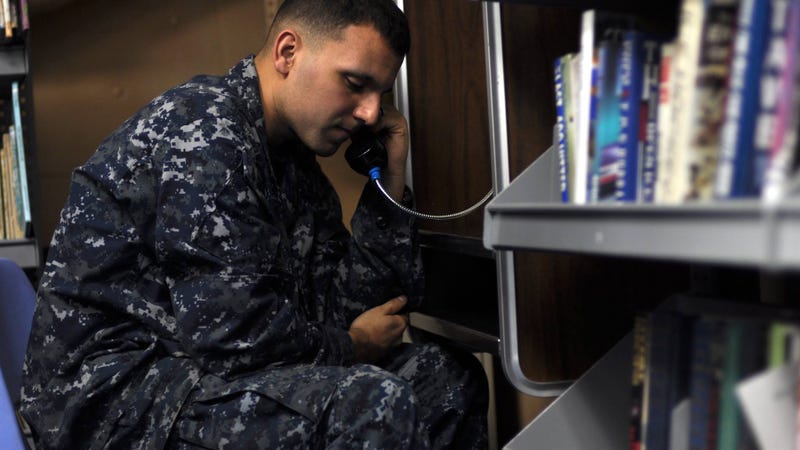
Rob Bergquist wasn’t like most 12-year-old boys. While many would want to be playing video games or tossing around a baseball, Bergquist was starting a charity.
In 2004, Bergquist and his sister Brittany Bergquist, who was 13 at the time, were getting ready for school and heard a story about a soldier in Afghanistan who had been passing his cellphone around to fellow soldiers who were trying to call home.

The soldier’s bill ended up being $8,000.
“I thought of my cousins who were active duty at the time, and I put myself in that soldier's shoes,” he said “That soldier was risking his life serving for his country and he has that kind of bill.”
Bergquist and his sister decided to do something to help the soldier out. The two held car washes and bake sales in Massachusetts where they lived. From there, the siblings started getting a lot of media recognition because they were so young and trying to support those in the military.
Bergquist said that he started receiving more requests from other service members who were also trying to pay off their large cellphone bills and before he knew it, he and his sister had paid off 15,000 cellphone bills.
“I realized there was a systematic issue with service members trying to call home,” Bergquist said. “So we decided to start a nonprofit to connect active-duty deployed military around the world to affordable service.”
That’s when Cell Phones for Soldiers emerged.
“We had a lot of help at first from our parents who were school teachers,” he said. “I started this nonprofit with just piggy bank money, and whatever money we had in savings we put into that first soldier with the $8,000 bill.”
Once the nonprofit really took off, people would donate old cellphones and Bergquist would recycle them or sell them off to get money to buy calling cards to send overseas.
In 2021, 50,000 devices were recycled per month and it generated more than $1 million in revenue.
Since the nonprofit began, Cell Phones for Soldiers has generated more than 400 million minutes through around 200 million prepaid calling cards.
“It’s just awesome. I’m so proud of what we have been able to accomplish and provide as a service,” he said. “It’s incredibly important to bridge the communication gap of active-duty members and their families.”
Currently, there are more than 3,000 drop-off locations across the country that collect devices on our behalf and more than 3,000 volunteers that manage those drop-off locations.
“It’s a really unique way for the community to get involved,” Bergquist said. “We aren’t asking for military donations. We will accept them, but we are really asking for something people don’t want or need.”
It proves the statement that one man’s trash is another man’s treasure.
Bergquist said to have provided and continue to provide those important connections for families and service members is the greatest honor of his life, but the mission isn’t done yet.
As time has gone on, the calling cards have been requested less and less because of systems such as Skype and Zoom.
Now, the nonprofit has expanded its mission to support veterans and service members who have returned home
“People were asking us often if we were doing anything on the home front, but we didn’t have anything,” he said. “So we launched a low cost, or in some cases, free phone service for those who qualified for it.”
Many military members get home from being deployed and have no means to pay for phone service. The nonprofit helps pay off those cellphone bills.
“We want to create a solution so veterans don’t get into those delinquent phone bills so they won’t be paying those high phone bills with companies like Verizon or AT&T,” he said.
Although many don’t need to be fully subsidized, the nonprofit wanted to be prepared to help military members in any type of financial crisis.
Cell Phones for Soldiers also launched an initiative called Helping Heroes Home.
With the help of other nonprofits, the initiative provides emergency funding for veterans to alleviate communication challenges as well as physical, emotional, or assimilation hardships.
“We will always be looking for new ways to help veterans and those that are still active military,” Bergquist said. “This is my life’s work.”



